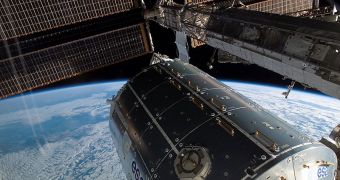The International Space Station (ISS) has not been infected by the infamous Stuxnet computer virus/cyberweapon, experts in charge of the facility's operations said recently. Their claim comes in the wake of a media frenzy about how the virus, known for its infiltration of nuclear power plants and facilities, made its way into computers aboard the orbital lab.
It all started from a short speech that the head of Kaspersky Lab made last week in Canberra, at an Australian Press Club meeting. Eugene Kaspersky, who founded the Russian anti-virus firm, gave a series of examples of vulnerabilities affecting modern computers, but his words were misinterpreted.
Rather than saying that Stuxnet had somehow made its way to the ISS, the company official presented the audience with two different examples of vulnerabilities. The first referred to malware being carried unintentionally to the space station with flash drives and USB sticks.
The second referred to a recent Stuxnet infiltration of a Russian nuclear power facility. Somehow, many news outlets merged to the two examples, which resulted in a story about how the cyberweapon was already installed aboard the International Space Station.
“The space guys, from time to time, are coming with USBs, which are infected. I'm not kidding. I was talking to Russian space guys and they said, 'Yeah, from time to time, there are [computer] viruses on the space station,” Kaspersky said at last week's meeting.
NASA has already admitted that computer viruses have made their way into space on several occasions, though it declined to identify the exact instances when this occurred. But one such event is known to have occurred in 2008, when a laptop aboard the station was found to contain a Windows worm, Space reports.
However, officials at NASA are adamant that command-and-control computers aboard the ISS, the units responsible for critical operations, have never been infected. The agency has since switched from Windows to Linux, since the latter is attacked significantly less often than the former.
Security experts say that the personal laptops astronauts bring to space remain the largest threat to ISS electronic security. However, these computers are never linked directly to critical systems on the station, so there is very little risk of a data leak.

 14 DAY TRIAL //
14 DAY TRIAL //